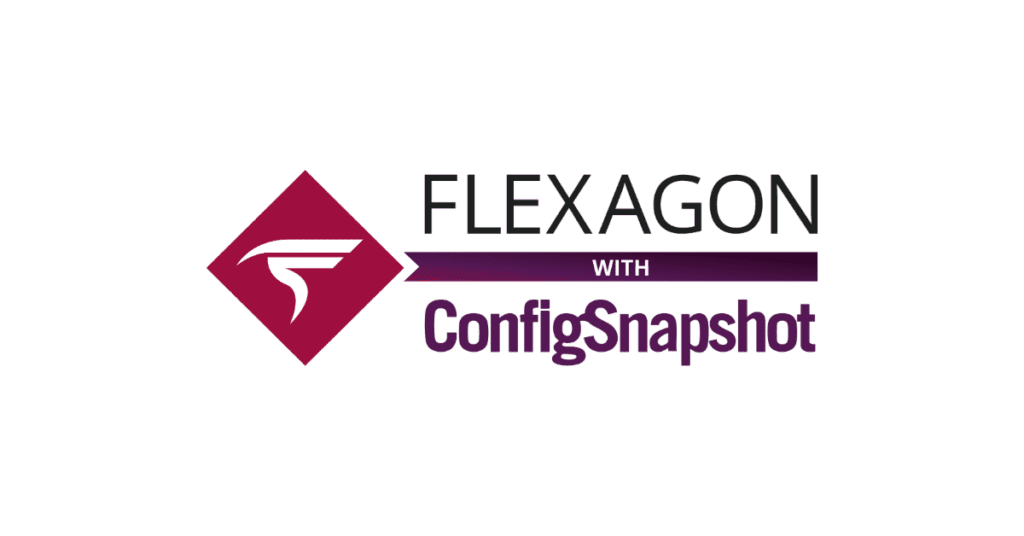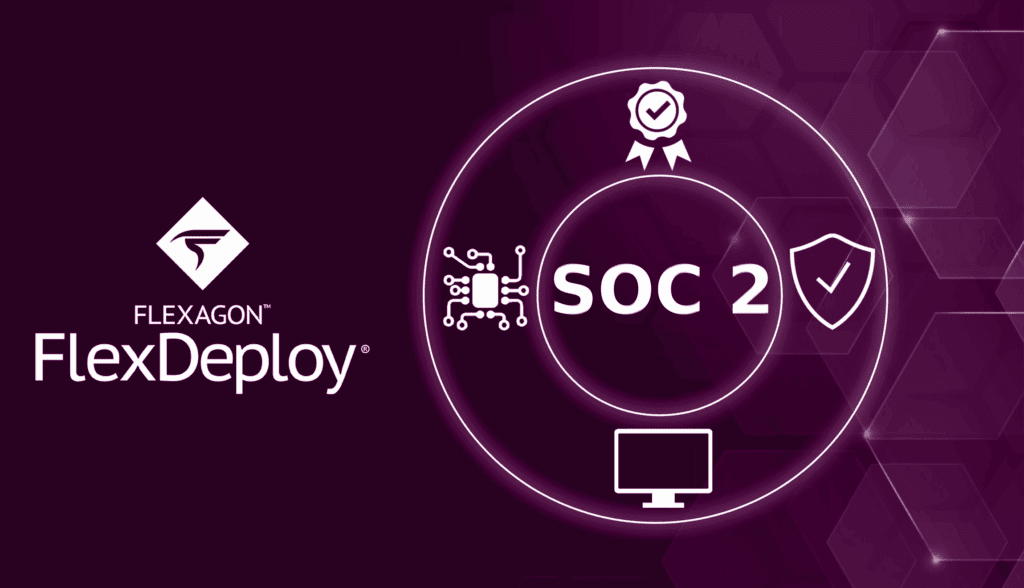Flexagon has released FlexDeploy 5.5 which includes new and enhanced platform features, plugins, and plenty of usability and productivity improvements. FlexDeploy is all about applying agile DevOps, CI/CD, and Release Orchestration processes and automation to speed up software development and delivery while improving quality, risk, and cost for on-prem and cloud-based solutions. This release benefits all roles throughout the lifecycle for developing, delivering, and managing technology solutions.
Be sure to check out the Release Notes for complete details, and don’t miss the awesome blog articles sprinkled throughout this release summary.
Next Generation Container Support for Docker and Kubernetes
The enhancements in this release build off the existing strong foundation of native container support and include the following.
- New Container Project type for Docker and Kubernetes use cases. In addition to the new Container classification type, project configuration tabs have been optimized for better UX.
- Improved container image scanning via Anchore and DockerBench as well as automatically running containers during the deploy workflow. Container deployments “link” the container to the Project and provide lifecycle management features including starting/stopping the container, viewing container logs and runtime statistics, and improved Kubernetes monitoring.
If you want to learn more, here is a must-read blog post: Better Container CI/CD with FlexDeploy.
Dynamic Packages
Partial deployment projects with user-managed packages have been supported for a long time. Dynamic Packages have their content managed automatically as new project files are populated into the project. This simplifies the management of the package when it consists of files mapping to a folder and can be built and deployed together in a logical grouping. FlexDeploy’s change detection ensures only files which have changed are deployed when the package is migrated.
Oracle SaaS: Transactional Business Intelligence
Oracle Transactional Business Intelligence (OTBI): FlexDeploy provides an innovative solution for building and deploying OTBI web catalog objects. The solution leverages FlexDeploy’s partial deployment support paired with dynamic packages to migrate web catalog objects from source control or a development OTBI instance to other instances across the pipeline.
Take a look at this CI/CD Meets Oracle Transactional Business Intelligence blog for an overview which includes detailed descriptions and screenshots to bring things to life.
Oracle SaaS: CX Commerce
CX Commerce: Oracle CX Commerce is a robust cloud service for building store fronts, and FlexDeploy 5.5 includes the first of multiple features to automate the deployment of CX Commerce code and configurations. FlexDeploy5.5 supports the deployment of Commerce Cloud Server-Side Extensions.
Take a look at this DevOps for Oracle CX Commerce Server Side Extensions blog for more in-depth coverage.
Salesforce Enhancements
FlexDeploy packs a punch for the Salesforce ecosystem including Salesforce proper and MuleSoft Anypoint Platform. FlexDeploy 5.5 includes a new Salesforce plugin operation ‘analyzeApexCode’ to help find common programming flaws like unused variables, empty catch blocks, unnecessary object creation, and many more security and quality issues using the PMD source code analyzer.
Read article 4 in the Salesforce blog series to get more detail on the 5.5 enhancements along with other test and quality automation: FlexDeploy Loves Salesforce: Unit Test and Test Automation for Salesforce
Security – Thycotic Secrets Server Integration
An integration with Thycotic Secret Server is now available out of the box, allowing secrets to be moved out of FlexDeploy and into your enterprise secrets solution. Thycotic joins the other secrets management integrations for Azure Key Vault, Hashicorp, and CyberArk.
Pre-deploy Workflows
Release Pipelines help govern changes as they move across environments. Sometimes it is useful to have a step in the pipeline after the approvals and before the deployment where there can be further review of the “blueprint” of the change before it is deployed. FlexDeploy’s Pre-Deploy workflow and Pre-Deploy step allows you to review a blueprint of a change before making the change permanently.
See this Pre-Deploy Workflow Using FlexDeploy blog article for a nice overview.
Workflow Execution Reports and Tasks
FlexDeploy 5.5 introduces the concept of report files which are the result of any type of workflow execution but are not necessarily artifacts. This may include files to review in Pre-deploy execution and other workflow types. Each workflow execution displays related tasks which were completed and improves the audit process.
New and Improved Plugins
We continue investing in out-of-the-box solutions for technology ecosystems and toolchain categories for all aspects of DevSecOps.
- New container scanning: DockerBench , Anchore
- New Oracle SaaS: CX Commerce, Oracle Transactional Business Intelligence (OTBI)
- Improved: Docker, Salesforce, Terraform, Oracle Data Integrator, Jython, Groovy
Here are blog posts which go into detail on a few new and improved plugins.
- Customized DevOps for ODI Objects with FlexDeploy
- Getting Groovy with FlexDeploy for Customized CI/CD
- Oracle Data Integrator Release Management with Deployment Archives
Isolated Networks
Most implementations involve a central FlexDeploy server to support build, deploy, and release management execution across environments. Some architectures require strict network isolation where FlexDeploy installed on one network cannot access Endpoints on another isolated network. These isolated networks can also be restricted to specific users and/or tools. This means that we need multiple installations of FlexDeploy on each isolated network while still supporting build once – deploy many automation across all environments and end-to-end auditing and reporting.
Here is a blog article which provides an overview of FlexDeploy for Isolated Network Architectures.
Usability and User Experience
Achieving the best user experience (UX) and highest levels of productivity requires ongoing investment, and the UX and productivity improvements in FlexDeploy 5.5 help customers throughout their entire FlexDeploy journey. Examples of UX improvements in 5.5 include copying Pipeline Stages/Gates/ Steps and automated credential testing.
Check out the Top 12 FlexDeploy UX Improvements in the Last Year, including some 5.5 enhancements.
Blogs, Webinars, Workshops, and more!
Salesforce, Containers, Oracle APEX and Database, Azure DevOps, and Oracle Integration Cloud have been popular topics. Check out the following blog posts and make sure to review the Flexagon Events page for upcoming and past webinars and workshops. Lots of resource available for you to enjoy!
- Make Database Changes with the JDBC Plugin
- Comparing the FlexDeploy JDBC and Oracle Database plugins
- FlexDeploy Integration with Azure DevOps
We are excited for you to check out FlexDeploy 5.5 and to get your feedback. Come and get it!



